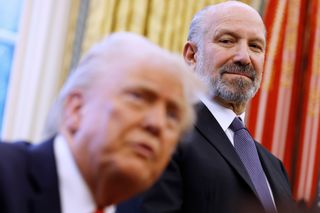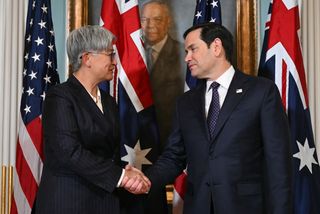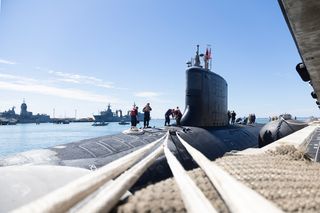Amid President Donald Trump’s chaotic tariff threats on Canada, Mexico and Colombia, more detail is emerging as to how his administration will approach issues of economic security. Economic security – the increasing entanglement between the global flow of resources with national security concerns – became a core focus of the previous Biden administration which implemented policies like tariffs, subsidies, export controls and investment screening. This attention on economic security looks set to continue under the Trump administration, with the key change of favouring tariffs over subsidies to achieve US foreign and security policy outcomes.
Government departments including State, Treasury and Commerce will be responsible for carrying out Trump’s economic vision. Howard Lutnick is awaiting confirmation as Commerce Secretary by the Senate and Marco Rubio and Scott Bessent have previously been confirmed as Secretary of State and Treasury Secretary, respectively. Statements at their Senate confirmation hearings reinforce the US’ historic tilt away from free trade and highlight the growing attention to economic security issues.

In his Senate confirmation hearing, the first policy issue Marco Rubio mentioned was the perceived harm free trade policies caused to the American economy, supply chains and industrial capacity. Scott Bessent began his testimony saying his Treasury Department “plays a critical role in protecting American national security.” Only a few years ago it would have been unusual for a US Secretary of State to make critical statements about trade and for a Treasury Secretary to prioritise national security before the troubling budget deficit or taxes.
Rubio is a China hawk and a dedicated backer of Trump’s “America first” foreign policy, expressing support for tariffs and onshoring manufacturing. Although conflicts in Europe and the Middle East will naturally consume his immediate attention, supply chain security is clearly a key priority. As a Senator, Rubio sponsored legislation targeting the exploitation of Uyghurs in supply chains and in his hearing stated, “if we don’t change course, we are going to live in a world where much of what matters to us on a daily basis… will be dependent on whether the Chinese allow us to have it”.
In his confirmation hearing, Bessent discussed three types of tariffs the Trump administration may use: tariffs to counter unfair trade practices (read, China); universal tariffs to raise government revenue (extracted from US companies and customers); and tariffs to use as negotiating leverage (such as with Mexico and a raft of others). He even flirted with the idea of introducing carbon border tariffs. But, contrary to Trump’s campaign statements of universal 20% tariffs, Bessent is reportedly in favour of a more gradual approach to tariffs to give countries time to negotiate, starting at 2.5%.
Howard Lutnick proposed tariffs implemented on a country-level rather than product-level – a departure from the Biden administration’s approach of high tariffs on strategic products.
As for Trump himself, he notably did not implement any tariffs on day one. Instead, he issued an Executive Order on an “America First Trade Policy”. The Order announced investigations into the trade deficit and unfair trading practices, but also has an “economic security” section. That section calls for reviews of the US manufacturing base, technology export controls, outbound investment screening and connected vehicles. The Order points towards an economic security agenda that will accelerate actions already taken under the Biden administration.
Australia fared fairly well under the Biden administration’s economic security agenda, securing exemptions from export controls, classification as a “domestic source” for certain defence products, and (after a push from Marco Rubio) access to US EXIM bank funding for critical minerals projects. It’s too early to assess what the impact of Trump’s economic security agenda will have on Australia. Australia is in a relatively good spot to negotiate with the Trump administration if universal tariffs are placed, particularly given our trade deficit and Trump’s propensity to use tariffs as a negotiation tactic. If implemented, the impact of tariffs could be mixed – for example, tariffs on Canada could help our rival industries like aluminium but tariffs on China could hurt Australia, given the integration between our mining exports and China’s industrial strength. Tariffs may even have backfire on Trump, especially if they increase inflation for American consumers.

There is scope for Australia to cooperate with the United States on economic security issues. Supply chain security was high on the list of issues Marco Rubio discussed with Australian Foreign Minister, Penny Wong, during their first meeting earlier this month. With climate change initiatives currently in doubt and the cloud of universal tariffs still looming, alignment on critical minerals supply chains provides a glimmer of hope for Australia-US economic security cooperation.
Trump and his team have a clear view of the world – trade policy is key to security and tools Biden used, like tariffs and investment screening, should be expanded. How this translates into policy remains to be seen as the departments carry out their reviews. While countries like Australia will have to navigate unpredictable rhetoric and strongman policies, it will be important to keep focus on the bigger economic security picture and advocate for our own interests in this increasingly turbulent world.









